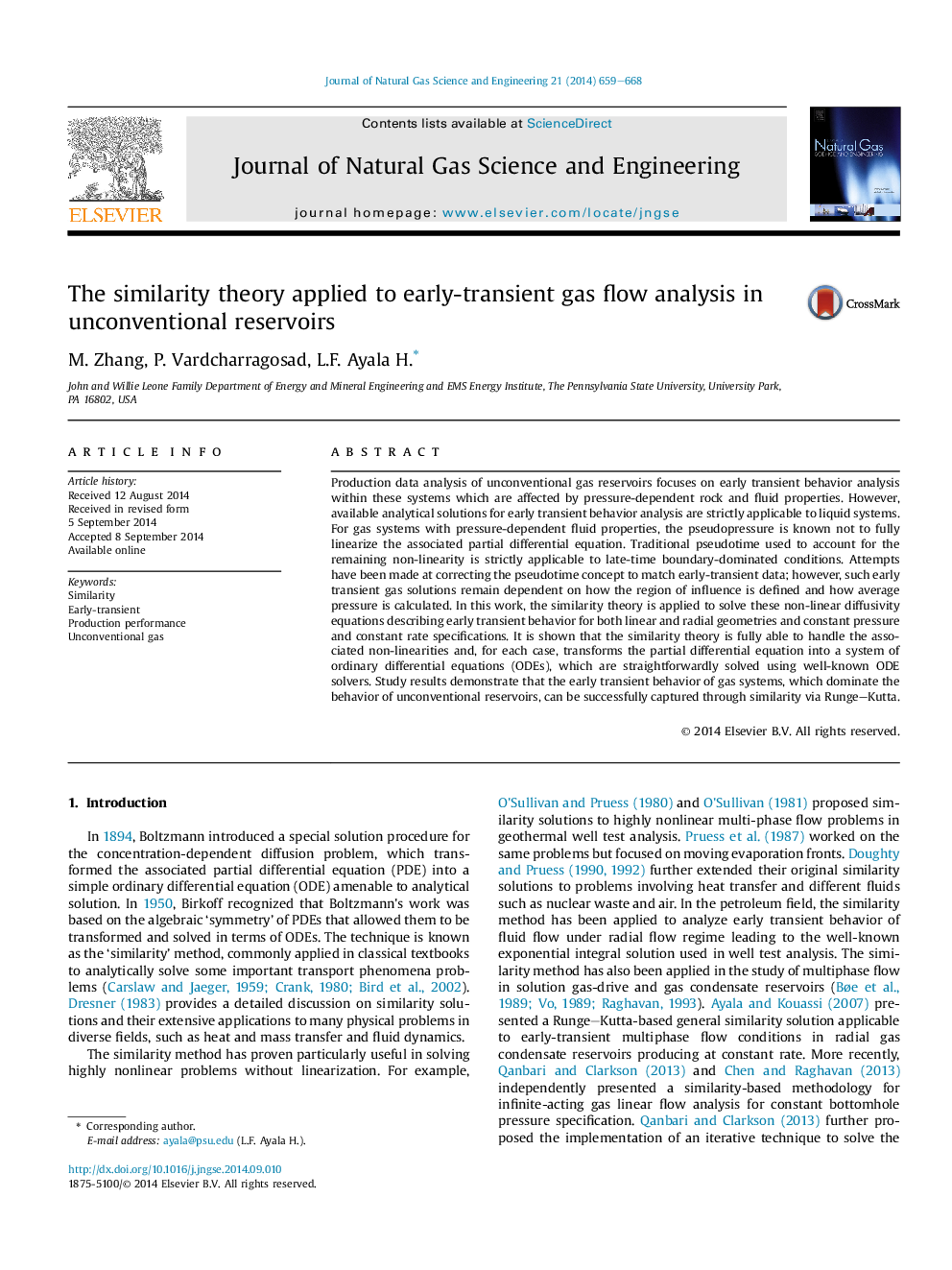| Article ID | Journal | Published Year | Pages | File Type |
|---|---|---|---|---|
| 8129327 | Journal of Natural Gas Science and Engineering | 2014 | 10 Pages |
Abstract
Production data analysis of unconventional gas reservoirs focuses on early transient behavior analysis within these systems which are affected by pressure-dependent rock and fluid properties. However, available analytical solutions for early transient behavior analysis are strictly applicable to liquid systems. For gas systems with pressure-dependent fluid properties, the pseudopressure is known not to fully linearize the associated partial differential equation. Traditional pseudotime used to account for the remaining non-linearity is strictly applicable to late-time boundary-dominated conditions. Attempts have been made at correcting the pseudotime concept to match early-transient data; however, such early transient gas solutions remain dependent on how the region of influence is defined and how average pressure is calculated. In this work, the similarity theory is applied to solve these non-linear diffusivity equations describing early transient behavior for both linear and radial geometries and constant pressure and constant rate specifications. It is shown that the similarity theory is fully able to handle the associated non-linearities and, for each case, transforms the partial differential equation into a system of ordinary differential equations (ODEs), which are straightforwardly solved using well-known ODE solvers. Study results demonstrate that the early transient behavior of gas systems, which dominate the behavior of unconventional reservoirs, can be successfully captured through similarity via Runge-Kutta.
Related Topics
Physical Sciences and Engineering
Earth and Planetary Sciences
Earth and Planetary Sciences (General)
Authors
M. Zhang, P. Vardcharragosad, L.F. Ayala H.,
